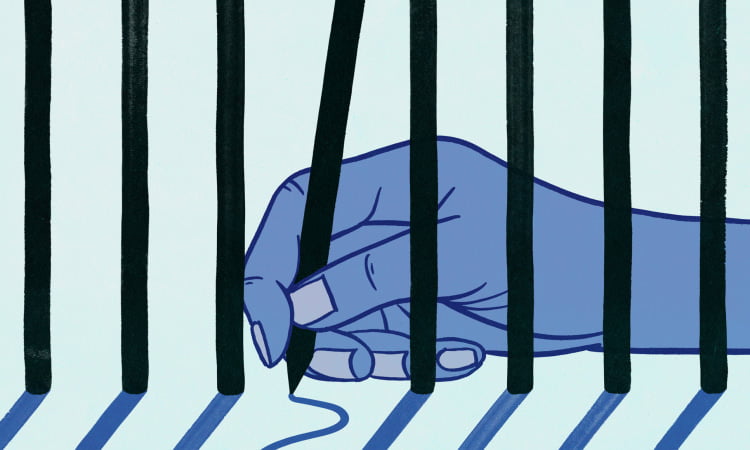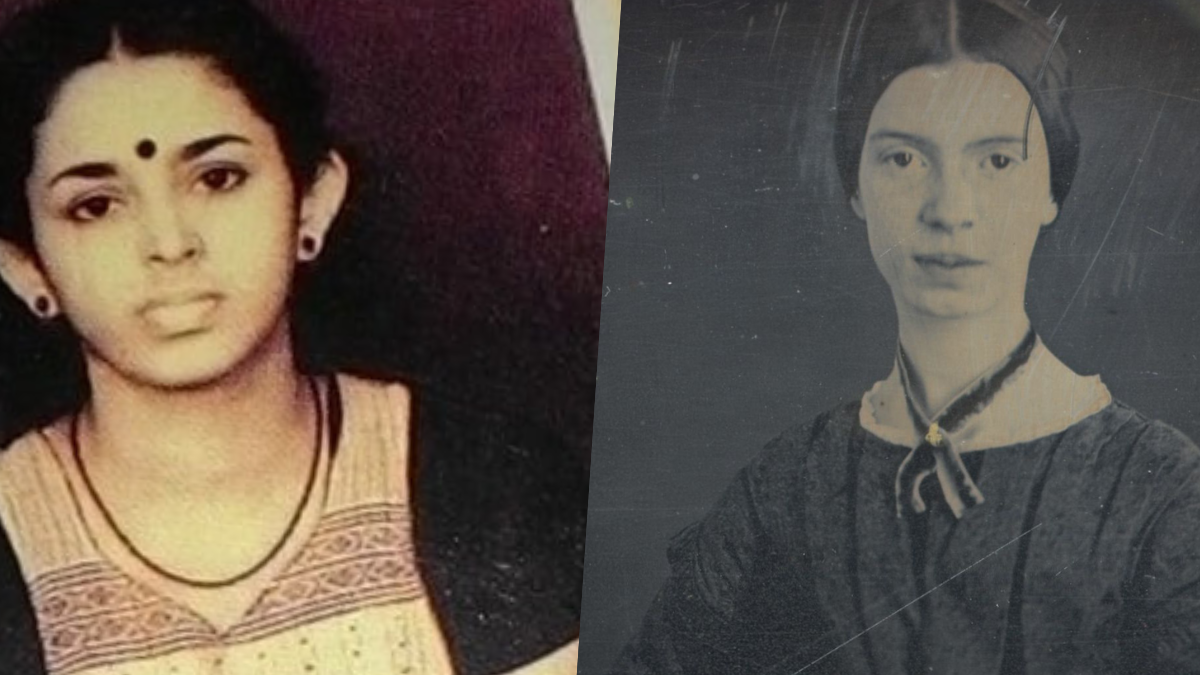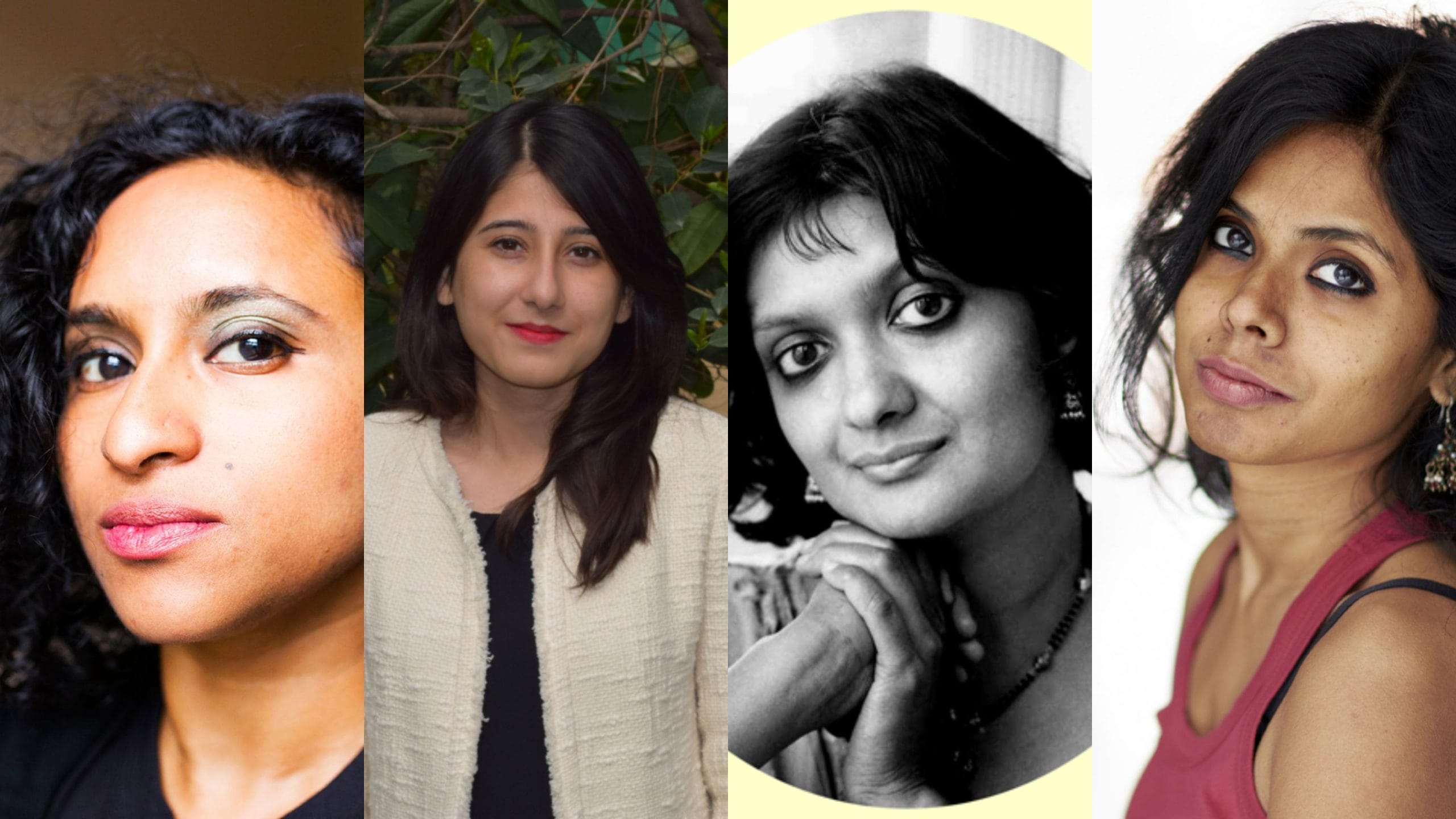“For women, poetry is not a luxury. It is a vital necessity of our existence. It forms the quality of the light within which we predicate our hopes and dreams toward survival and change, first made into language, then into idea, then into more tangible action.”
-Audre Lorde
The following verses have been collated in service of a feeble attempt to illustrate the spectrum of assertions that can be found in the work of eight Indian Women Poets. The list is by no means exhaustive and perhaps, does not offer an adequate representation of the category “Indian Women Poets”.
Nevertheless, the excerpts demonstrate that this category can be understood as a continuum of affirmations. Each voice is grounded in particular sociohistorical conditions, and yet, they all demand to be read as assertions, as words that refused to succumb to erasure.
1. How can you be modest?
“People,
male and female,
blush when a cloth covering their shame
comes loose
When the lord of lives
drowned without a face
in the world, how can you be modest?”
-Akka Mahadevi
A Bhakti women poet, Mahadevi questions the hollow taboos that society drapes itself in. Shame is a red emotion bestowed upon the self by the other. It thrives in a violent culture that is predicated upon a network of unthinking, passive conformity.
Mahadevi’s gentle assertion lays bare this prudently constructed network’s hold on the individual as she urges one to surrender to the Divine. The poet imagines the Divine as a formless entity that drowned without a face in the world. The Bhakti poet does not regard the Divine as a supreme figure that lays outside herself but as a presence that is inextricably linked to her soul.
2.The Suicide
“How easy your duties are.
How simple.
Only roar a hungry roar,
Leao forward,
And retreat.
You swing and you swing,
O sea, you play a child’s game.
But,
I must pose.
I must pretend,
I must act the role
Of happy woman,
Happy wife.”
-Kamala Das
In this fragile poem, the renowned woman poet converses with the sea. Kamala Das writes of exhaustion and healing. Simone De Beauvoir once claimed: “One is not born a woman, one becomes a woman”. The poet interrogates the claim. Submerged under the weight of an ascribed identity, Kamala Das tries to find the words she can call her own, beyond the ones that have been put into her mouth.
Perhaps, the exploration of selfhood can be read as an act of assertion against the patriarchy, a structure that urges one to surrender to the convenience of an ascribed self. The poet uses a confessional technique as she lays bare all the encumbrances that have rendered her immobile, only to heal and rise, self-assured.
3. Looks
“Looks
From two eyes
Dart like needles
Roam freely on flesh.
The looks never
Look into the face
The words never come from the heart
They crawl on the body like white ants
Disgust every time I see them.
Those eyes
Belong to a million classes
But their looks are all the same.”
-Jayaprabha
Written in Telugu, the poet describes how it feels to be observed by an overbearing and voyeuristic male gaze. Jayaprabha pushes the reader into an unsettling disquiet where the fears, anxieties, and unease of being observed and framed become visible. Her language is sparse.
The movement of the gaze is compared to the movement of ants, an analogy that allows for a visual manifestation of a force that is an experience felt by many but rarely ever put into words. Jayaprabha’s harrowing words evoke anger and exhaustion and yet, the poet does not frame herself (as the observed prey of the “looks”) in a discourse of pity but that of assertion.
4. The River of Girls
“This doctor with his rusty tools,
this street cleaner, this mother
laying down the bloody offerings
of birth. This is not the cry
of a beginning, or a river
buried in the bowels of the earth.
This is the sound of ten million girls
singing of a time in the universe
when they were born with tigers
breathing between their thighs”
-Tishani Doshi
The verses offer the reader a vivid set of images along with an exploration of sound. The immigrant poet uses powerful language to speak of hopelessness, of India’s missing girls. There is an attempt to restore the lost, forgotten images in collective memory.
The poet’s words are an intervention for the seamless farce of normalcy that is held together by loose ends. The experience of birth is represented as a series of violent images and uncomfortable sounds.
Also Read: 9 Poets To Understand Lesbian Desire And Female Homoeroticism
5. Gone and Buried
“Like chiffon saree pallus and duppattas
with the wind.
They were buried like unsent letters
hiding away, stuffed at the back of a wardrobe.
Like trapped bodies
under a pile of disaster rubble.
Like precious treasures buried in the backyard by a refugee
before they eventually have to flee.
These floated away, buried stories
of the many women – when will they be heard?”
-Prerna Bakshi
The poet describes the collective trauma experienced by women during the Partition. As found in Doshi’s verses, these images too must be restored in collective memory. Bakshi’s analogies make reference to the voices that have been buried away, a series of secrets that must not be spoken of.
Yet, it is these images that must be rescued from falling into an endless oblivion. The oblivion is a space where one forgets that one has forgotten and willingly erased the realities that would cause entire worlds to fall apart. Bakshi converses with our collective memory, she speaks of the violent histories that cannot be forgotten even if they are silenced and buried time and again.
6. Eclipse
“He plays on centre-stage
I, only on the periphery.
But I am content
With that fraction of
Eternity
When I have my moment
To reduce him
Into a tiny solitaire
Entrapped within the circle
Of my dark desire”
-Temsula Ao
Nagaland’s fierce poet uses the metaphor of the eclipse to offer an intricate observation of power relations. Temsula Ao offers wry commentary on her encounter with the mightly one. The poet uses the moment of eternity to make a forceful statement.
Her assertion finds expression in a breathtaking image, that of the margins swallowing the center whole. Hailing from Nagaland, she lies at the margins of the mainstream Indian imagination.
7. In Kashmir: Writing under Occupation
“there is no better heaven. our pens poised. the next word will liberate.
an orgasmic lull prevails.
that next sentence. always in arrival. like that justice thing.
meanwhile Ashfaq is no more. Maqbool has gone. Asiya and Neelofar, raped then killed. Afzal hanged. Tufail, buried in two graves. the Ittar seller in Lal chowk disappeared. they found his bones with empty bottles; the kettle whistles.
the tea never comes.
our bones are made tired. waiting.
before the door of law from that over-used Kafka tale. the only thing that grows after this wait, are their swords. looming mightier. and this too, we write.”
-Ather Zia
The harrowing verses speak of exhaustion. There are no words that can hold one’s world together when living under occupation, under the weight of traumatic memories and the pervasive threat of violence. The Kashmiri poet questions the act of writing: the next word will liberate.
She interrogates the illusion of possibility and hope that the written word can construct in a bleak landscape defined by hopelessness. She turns to the over-used Kafka tale, to write of a reality that can perhaps, only be understood through the construct of a dystopian world predicated on the denial of human freedoms.
8. My lover speaks of rape
“Blues blend to an unforgiving metropolitan black
And loneliness seems safer than a gentle night
In his arms. I return from the self-defence lessons:
Mistrust is the black-belted, loose white mechanism
Of survival against this groping world and I am
A convert too. Yet, in the way of all life, he could try
And take root, as I resist, and yield later, like the earth.”
-Meena Kandasamy
The poet writes gentle verses. Kandasmy describes the pervasive phantasm of violence that she cannot escape from. She tries to speak to her lover about this phantasm. The lover is a silent figure who seems to be engrossed in the poet’s words as he attempts to comprehend the images.
The poet cannot help but be on guard, a prudent attempt to lock herself away from the potential horrors that might come her way. And yet, the reader can sense a gradual yet, prudent surrendering.
Also Read: Feminist Poetry: Contemporary Woman Poets Who Challenge Patriarchy In Hindi & Urdu
Featured Image Credit: TED
About the author(s)
I'm pursuing a major in Economics and a double minor in film studies and peace and conflict studies and I strongly believe in the importance of words, particularly the ones that are left out.





India’s Most Influential Women Poets
Women Poets